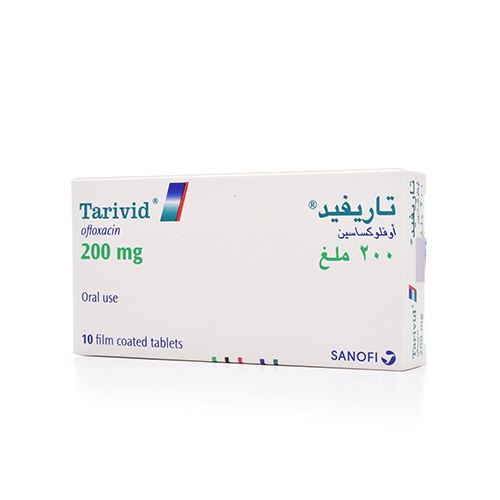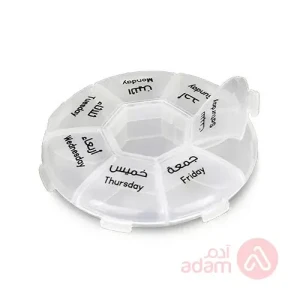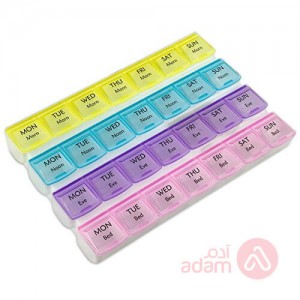Tarivid 200Mg | 10Tab


Tarivid 200Mg | 10Tab
Requires RxOfloxacin
Ofloxacin is a fluoroquinolone antibiotic.
It inhibits DNA replication by inhibiting bacterial DNA topoisomerase and gyrase enzyme which are essential for bacterial DNA separation during cell reproduction and division, thus preventing cell division.
Medicinal uses for Tarivid 200 mg tablets
Ofloxacin tablets are used to treat:
Urinary tract (cystitis and kidneys)
chest or lungs
Infections of the genital tract in both men and women (such as gonorrhea, a sexually transmitted disease)
Skin and soft tissues. Soft tissues such as those under the skin and include muscles
It may also be used to prevent and prevent certain types of infections in certain groups of patients under medical supervision
How to use Tarivid 200 mg Tablets
Always take ofloxacin tablets exactly as your doctor has told you. You should check with your doctor or pharmacist if you are not sure.
Take this medication by mouth
Swallow the tablets whole with water
When taking ofloxacin tablets, avoid strong sunlight and do not use sunlamps or solariums
Medicines containing iron (for anaemia), antacids (for indigestion or heartburn) or sucralfate (for stomach ulcers) should be avoided for 2 hours before or after you take ofloxacin tablets.
Your doctor will explain to you exactly how much ofloxacin you need to take as well as how often and for how long. This depends on what kind of infection you have and if you have kidney or liver problems.
Doses of up to 400 mg are taken as a single dose in the morning
This medicine should not be given to children or teenagers.
Dosages can be changed in special circumstances, so always follow your doctor's or pharmacist's instructions.
If you take more than you should, talk to your doctor or go to a hospital right away.
If you forget to take a dose, take it as soon as you remember unless it is nearly time for your next dose
Do not take a double dose (two doses at the same time) to make up for a forgotten dose.
What are the side effects of Tarivid 200 mg tablets?
Although the following side effects are not common to everyone, some patients may complain of the following:
convulsions;
Severe abdominal and back pain (signs of pancreatitis), inflammation of the intestines called colitis (or antibiotic-associated colitis), causing prolonged diarrhea with stomach cramps and fever.
an allergic reaction - signs may include swelling of your face, lips, tongue, and throat (this may make it difficult to breathe or swallow).
A serious skin reaction that causes blisters and bleeding is called "Stevens-Johnson Syndrome"
yellowing of the skin and eyes, unusual tiredness or fever, dark colored urine (signs of hepatitis and cirrhosis)
Kidney function disorder
































